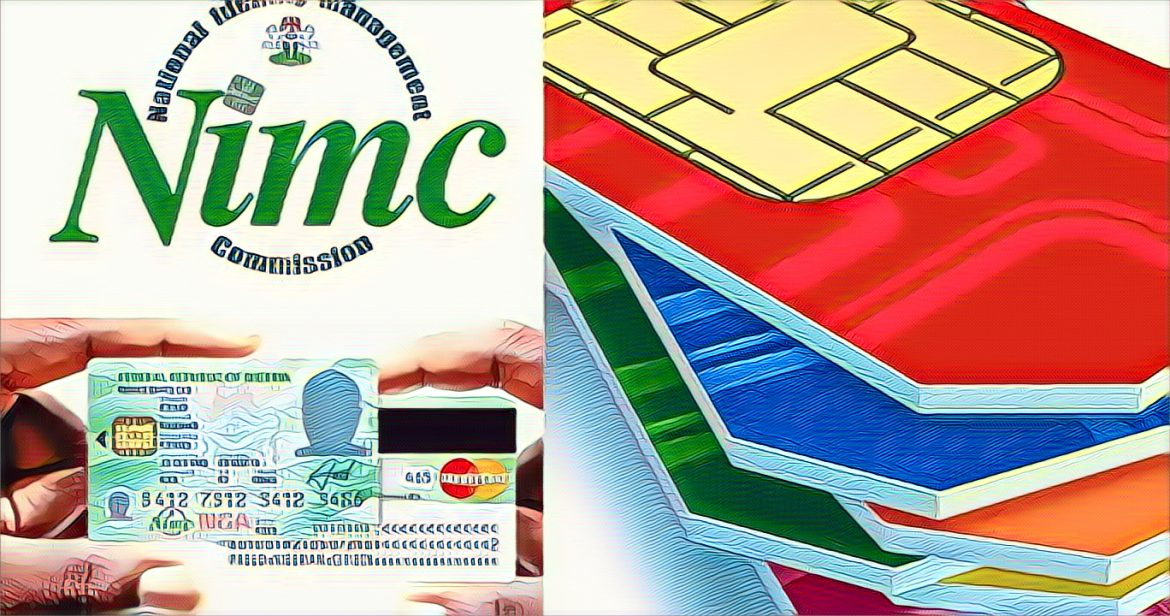The Nigeria Communications Commission (NCC) is set to enforce another major telecommunications policy milestone. In a determined effort to bolster security and ensure regulatory compliance within the telecommunications sector, telecommunications companies will soon sever connections for more Subscriber Identity Module (SIM) cards that are not linked to National Identification Numbers (NIN). This action is scheduled for Friday, March 29, 2024, marking a critical phase in the NCC’s ongoing campaign to secure digital identity management in Nigeria.
Reuben Mouka, the Director of Public Publicity at the NCC, confirmed this during a telephone conversation with The PUNCH, asserting that the deadline for the upcoming disconnection phase remains unchanged. The NCC’s directive unfolds in stages, with this second phase following the initial disconnection that took place on February 28, 2024. A subsequent, third phase is poised to begin on April 15, 2024, as part of the commission’s structured approach to implementing this policy.
Reflecting on the past enforcement on February 28, 2024, Mouka disclosed that approximately 40 million lines not linked to NIN were barred from the network. This substantial figure underscores the scale of the initiative and the NCC’s commitment to its execution. MTN Nigeria, one of the country’s leading telecommunications providers, reported that it had disconnected over 4.2 million lines from its network by the specified deadline.
The SIM-NIN linkage policy, inaugurated by the Nigerian government in December 2020, mandates all telephone line users in Nigeria to synchronize their SIM cards with their NIN. This directive aims to enhance the integrity of subscriber data and fortify security within the telecommunications industry.
Despite the clear intentions behind the NIN-SIM linkage initiative, it has not been without its controversies. The Socio-Economic Rights and Accountability Project (SERAP) recently expressed intentions to challenge the NCC’s directive legally, urging the commission to reconsider its stance and allow more time for Nigerians who have yet to comply with the linkage requirement.
In response to these challenges and in a bid to streamline the linkage process, the National Identity Management Commission and the NCC announced a strategic partnership. This collaboration seeks to simplify the NIN-SIM linkage procedure for telecommunications subscribers across the nation, reflecting both agencies’ commitment to improving the process’s efficiency and effectiveness.
Parallel to the NCC’s efforts, the Central Bank of Nigeria (CBN) also announced plans to freeze accounts lacking a Bank Verification Number (BVN) or NIN starting April 2024. This directive further aligns with the broader strategy of using digital identity verification to enhance security and regulatory compliance across Nigeria’s financial and telecommunications sectors.
As the deadline approaches, telecommunications providers, banking institutions, and regulatory bodies are intensifying their efforts to ensure widespread compliance with these directives. The implementation of these policies represents a critical step towards securing Nigeria’s digital economy, enhancing the integrity of digital identities, and ensuring the safety and security of telecommunications and financial transactions across the nation.
With the enforcement date looming, Nigerians are urged to complete their SIM-NIN linkage to avoid service disruptions. The concerted efforts of the NCC, CBN, and other stakeholders highlight the Nigerian government’s resolve to foster a secure and compliant digital ecosystem, pivotal for the country’s continued growth and security in the digital age.


